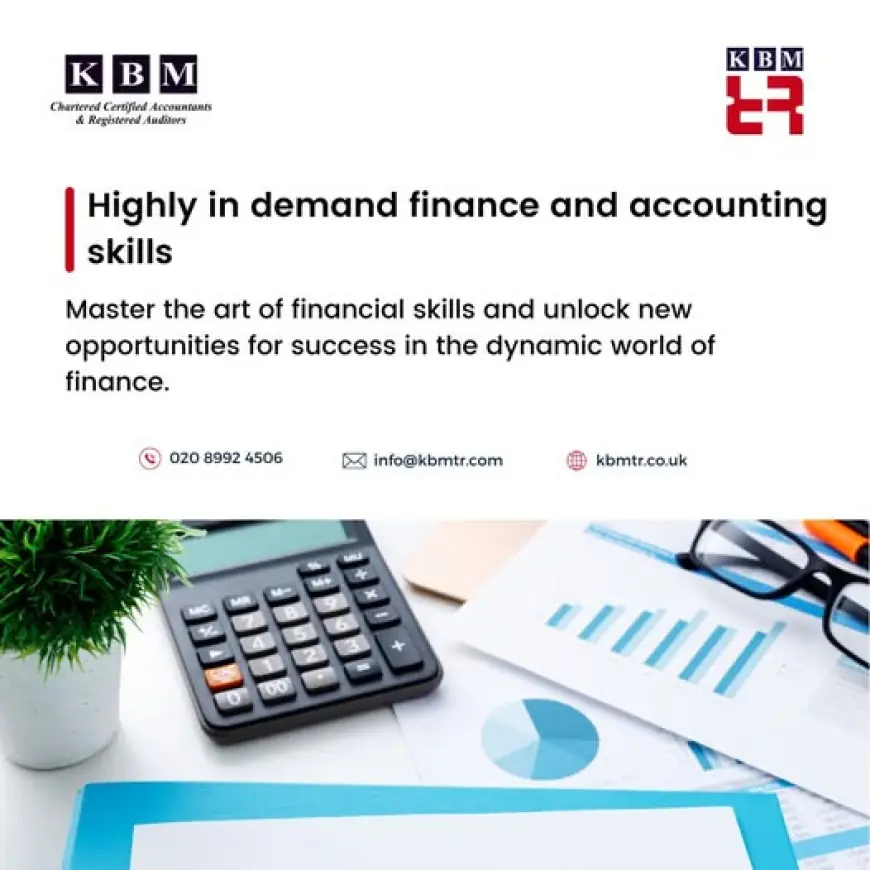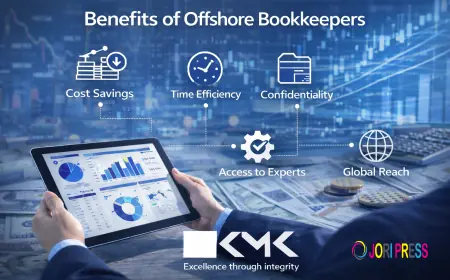From Student to Professional: Achieve More with an Accounting and Finance Course
Discover how an accounting and finance course, a financial accounting class, and AccountingCPD can boost skills and grow your career.

Financial success begins with solid, hands-on expertise. An accounting and finance course gives the necessary skills to learn how money moves within a business. From grasping the form of financial statements to performance analysis, these courses equip students for the actual pressures of the field.
A good program presents accounting principles in an easy-to-follow, step-by-step manner. Phrases such as assets, liabilities, income, and expenses make sense. When the fundamentals are understood, it is much simpler to address more sophisticated topics.
Why Courses Make a Difference
Most people go into the workforce having only a superficial knowledge of business money. An accounting and finance course bridges the gap by integrating theory with application. It is not merely memorising definitions. It is learning how to apply them to real-world situations.
These courses typically encompass hands-on exercises that simulate work tasks. Preparing accounts, bank statement reconciliations, and analysing financial information become integral to the learning process. This hands-on approach guarantees that learners' ability to perform in the workplace.
The Value of a Financial Accounting Class
A course in financial accounting is usually a central component of any finance and accounting program. It is all about the systems and processes which maintain business records accurately and compliantly. They learn to prepare balance sheets, income statements, and cash flow reports.
Financial accounting is critical for making decisions. Managers and company owners make financial plans, monitor spending, and evaluate performance based on these reports. A clear understanding of these skills can be the difference between plain competence and professional proficiency.
From Learning to Application
Knowledge is only helpful if you efficiently use it. An accounting and finance course fills the gap between the classroom and the career. With case studies, projects, and practice situations, students develop the confidence to manage actual financial issues.
For instance, the ability to recognise patterns in cash flows or inconsistencies in financial accounts is a highly desirable skill for employers. Repeated practice and guided instruction developed such skills.
Staying Ahead with AccountingCPD
The world of finance is constantly changing. Lawmakers modify legislation, regulators refine reporting requirements, and new technologies transform how people accomplish tasks. That is why continuous professional development is necessary. Sites such as AccountingCPD offer specialist courses to keep skills up to date.
With AccountingCPD, students have a choice of numerous topics, from technical account updates to strategic financial management. It enables one to specialise in the specific skills required for career advancement.
Opening Doors to New Opportunities
Taking a financial accounting class is not just about pursuing one career. It can lead to jobs in auditing, taxation, management accounting, and financial consultancy. Having the appropriate skills, it is now easier to transfer between industries from corporate finance into non-profit work or even government jobs.
Recruiters understand the flexibility of professional finance personnel. Such flexibility can prove to be an enormous strength in today's fast-paced job market, where having multiple hats to wear makes one's job safer.
Getting a Competitive Edge
In competitive industries, tiny margins can become a considerable advantage. A financial accounting class, in addition to a class in financial accounting, and ongoing learning through AccountingCPD, is that extra edge.
Employers look for individuals who possess both technical knowledge and a willingness to learn. It indicates dependability, flexibility, and drive. These are frequently the characteristics that distinguish successful professionals from others.
Career Advantages of Formal Learning
Passing a financial accounting class or a financial accounting course is more than a scholarly accomplishment. It indicates to employers that the learner is a professional and has real-world skills.
Most employers view these skills as evidence of preparedness for greater responsibilities. Whether aiming to work in corporate finance, public accounting, or even beginning a business venture, these skills form a strong foundation for success.
Developing Professional Confidence
It takes more than knowledge. Confidence comes from practising that knowledge until it becomes second nature. With a mixture of basic learning coupled with up-to-date updates from AccountingCPD, professionals can approach intricate financial issues without fear.
Confidence also translates to communication. Being able to communicate financial information simply to non-financial team members is a talent that makes professionals stand out in the workplace.
The Bottom Line
The transition from student to professional is simpler with proper training. Opting for an accounting and finance course supported by real-world experience can speed up career development. Accompanied by a financial accounting course, this ensures proper control over required processes.
Ongoing development through AccountingCPD makes knowledge new and worth it in a changing world. With this pairing, doing more, progressing faster, and standing out in the competitive accounting and finance discipline is achievable. An accounting and finance course can open doors to countless opportunities. Start learning today and take the first step toward a stronger, more confident career.
What's Your Reaction?
 Like
0
Like
0
 Dislike
0
Dislike
0
 Love
0
Love
0
 Funny
0
Funny
0
 Angry
0
Angry
0
 Sad
0
Sad
0
 Wow
0
Wow
0















































